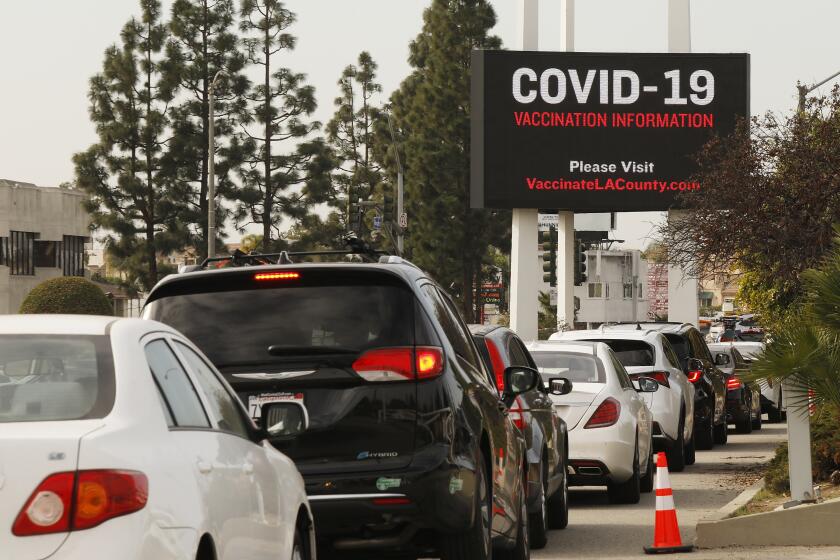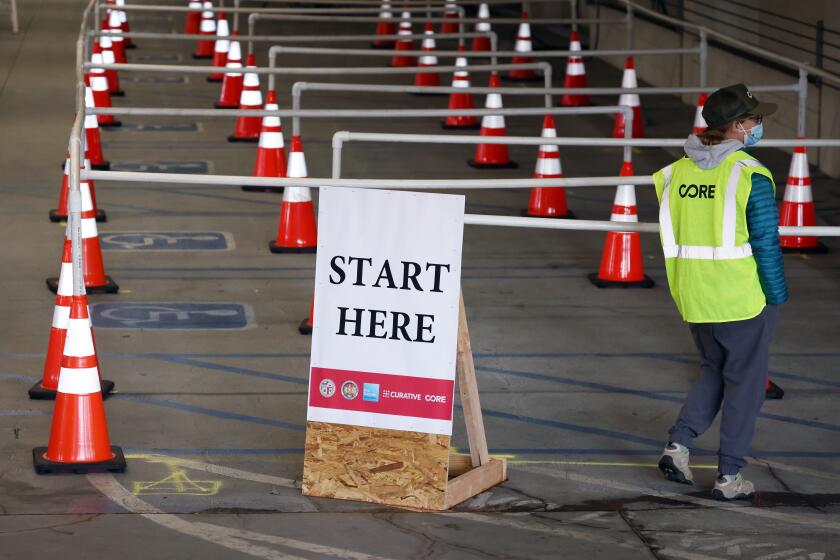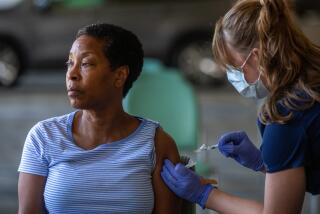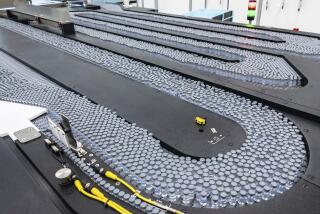California releases details on how millions can get COVID-19 vaccinations beginning Monday
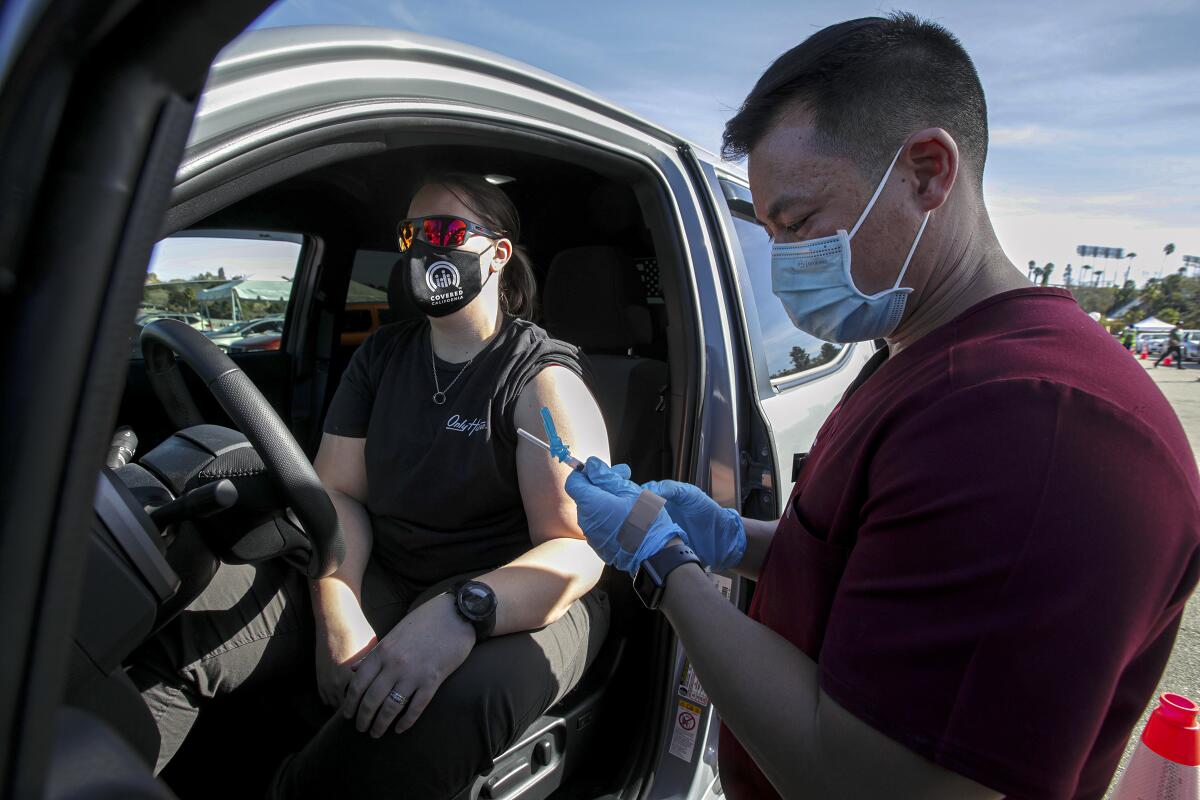
- Share via
Four days before an estimated 4.4 million Californians with disabilities or underlying health conditions become eligible for the vaccine, the California Public Health Department released guidance on the verification process.
Notably, the state is not requiring that eligible disabled or sick individuals present documentation of their condition. Instead, all will be required to self-attest that they meet the criteria.
Disability rights advocates had pressed for a process that would not create unnecessary barriers, especially for those less mobile, prompted by issues with vaccine line-jumping. The state also offered specific examples of people who would qualify for eligibility but are not explicitly listed.
Those include people who use regional centers, independent living centers, in-home supportive services, community-based adult services, Medi-Cal HIV/AIDS waivers, Medi-Cal home and community-based alternatives waivers, Medi-Cal assisted living waivers, program of all-inclusive care for the elderly, California children’s services program if the client is 16 to 21 years old, and California genetically handicapped persons program.
The process for getting a COVID-19 vaccine varies county to county.
The new guidance arrived amid confusion about whether people in these categories could sign up for vaccinations. The state had earlier set Monday as the first day of eligibility, but many had been waiting for more clear direction.
The high-risk group includes 10 categories: People with cancer; chronic kidney disease of Stage 4 or above; chronic pulmonary disease; Down syndrome; compromised immune system from solid organ transplant; pregnancy; sickle cell disease; heart conditions such as heart failure, coronary artery disease and cardiomyopathies (excluding hypertension); severe obesity; and Type 2 diabetes mellitus.
With population estimates for the group ranging from 4 million to 6 million, and with other eligible groups totaling some 13 million, nearly half of all Californians will now be eligible for the vaccine.
Officials urged people to work with their healthcare providers to seek vaccinations as their first step.
“Check first with your usual healthcare provider to see if they have vaccines and available appointments. Healthcare providers who have vaccines may also begin reaching out to you, as a patient with a significant, high-risk medical condition or disability known to the provider, to schedule your vaccine appointment,” the state said.
The Los Angeles County Department of Public Health says hundreds of thousands of additional people will become eligible for shots beginning next week.
Other options include local pharmacies, the health department, community pop-up clinics or using the My Turn website.
The state said people will not be required to prove they have disabilities or health conditions when they go in for vaccinations.
“To protect confidentiality, verification documentation of the diagnosis or type of disability is not required but instead anyone meeting the eligibility requirements will be asked to sign a self-attestation that they meet the criteria for high-risk medical conditions or disabilities,” the state said.
Officials have been warning that supplies will be limited and people should expect delays.
California is reserving 40% of doses for people in underserved communities and 10% for teachers. There are still many people 65 and older who are waiting for their vaccinations as well. And with just days to go, confusion still reigns.
What’s more, allocations of the Johnson & Johnson single-dose vaccine will come to a near-halt over the next two weeks while the company works to ramp up production, L.A. County Public Health Director Barbara Ferrer said during a news briefing Wednesday.
“Like we say every time we’re opening for a new sector, we have limited supplies still,” Ferrer said, indicating that eligibility within a group does not guarantee an appointment. “It means that we’re really very relieved we get to get started. ”
Gov. Gavin Newsom said Wednesday that “in the immediate term” the state doesn’t anticipate receiving additional doses of the Johnson & Johnson vaccine — which health officials have hailed as a potential pandemic game changer, as it requires only one dose and does not need to be shipped and stored at freezing temperatures.
In the bulletin it sent out Thursday evening, the state listed the following eligibility categories:
People ages 16 to 64 can be eligible if they are deemed to be at the very highest risk to get very sick from COVID-19
EITHER because they have one or more of the following severe health conditions:
- Cancer, current with weakened immune system
- Chronic kidney disease, Stage 4 or above
- Chronic pulmonary disease, oxygen dependent
- Down syndrome
- Solid organ transplant, leading to a weakened immune system
- Pregnancy
- Sickle cell disease
- Heart conditions, such as heart failure, coronary artery disease, or cardiomyopathies (but not hypertension)
- Severe obesity (body mass index ≥ 40 kg/m2)
- Type 2 diabetes mellitus with hemoglobin A1c level greater than 7.5%
OR if, as a result of a developmental or other significant, high-risk disability, one or more of the following criteria applies:
- A COVID-19 infection is likely to result in severe life-threatening illness or death; OR
- Acquiring COVID-19 will limit the individual’s ability to receive ongoing care or services vital to their well-being and survival; OR
- Providing adequate and timely COVID care will be particularly challenging as a result of the individual’s disability.
Source: California Department of Public Health
More to Read
Sign up for Essential California
The most important California stories and recommendations in your inbox every morning.
You may occasionally receive promotional content from the Los Angeles Times.
